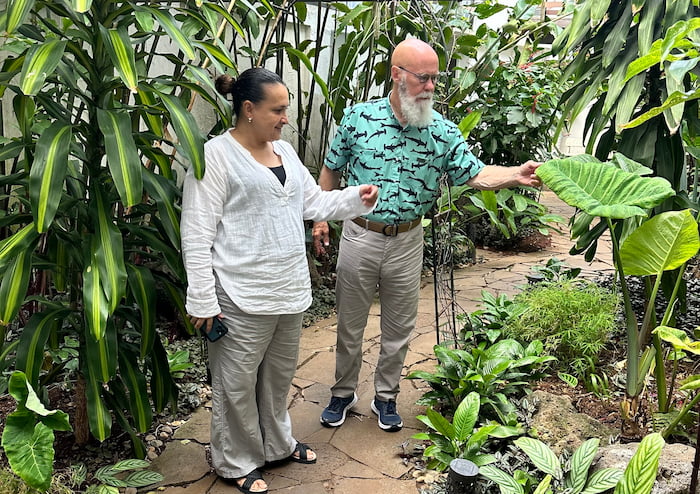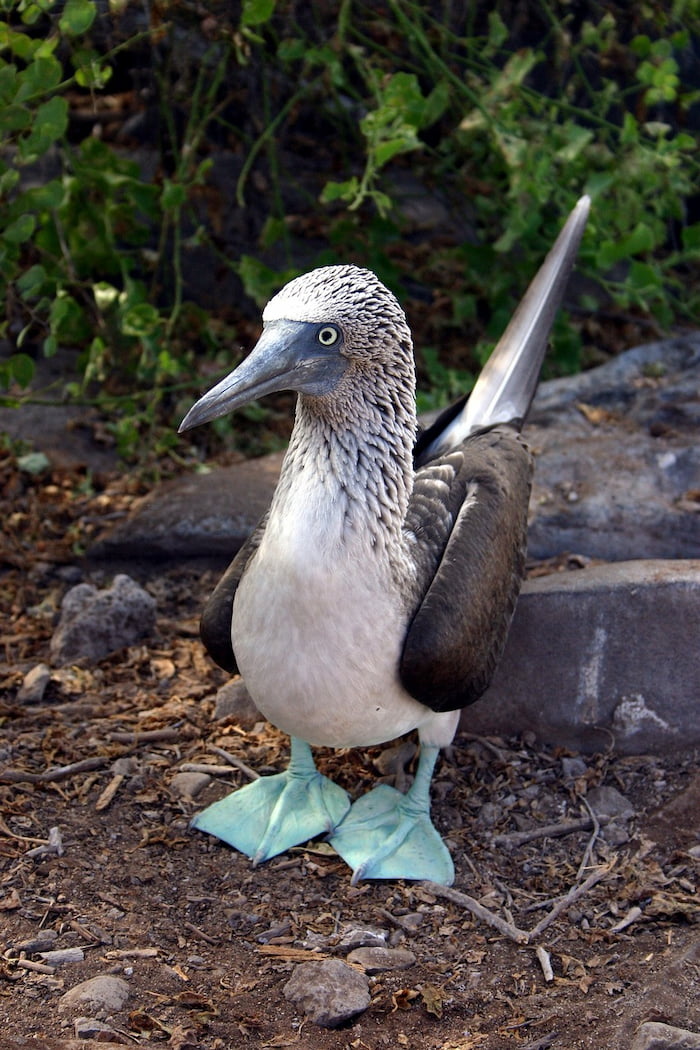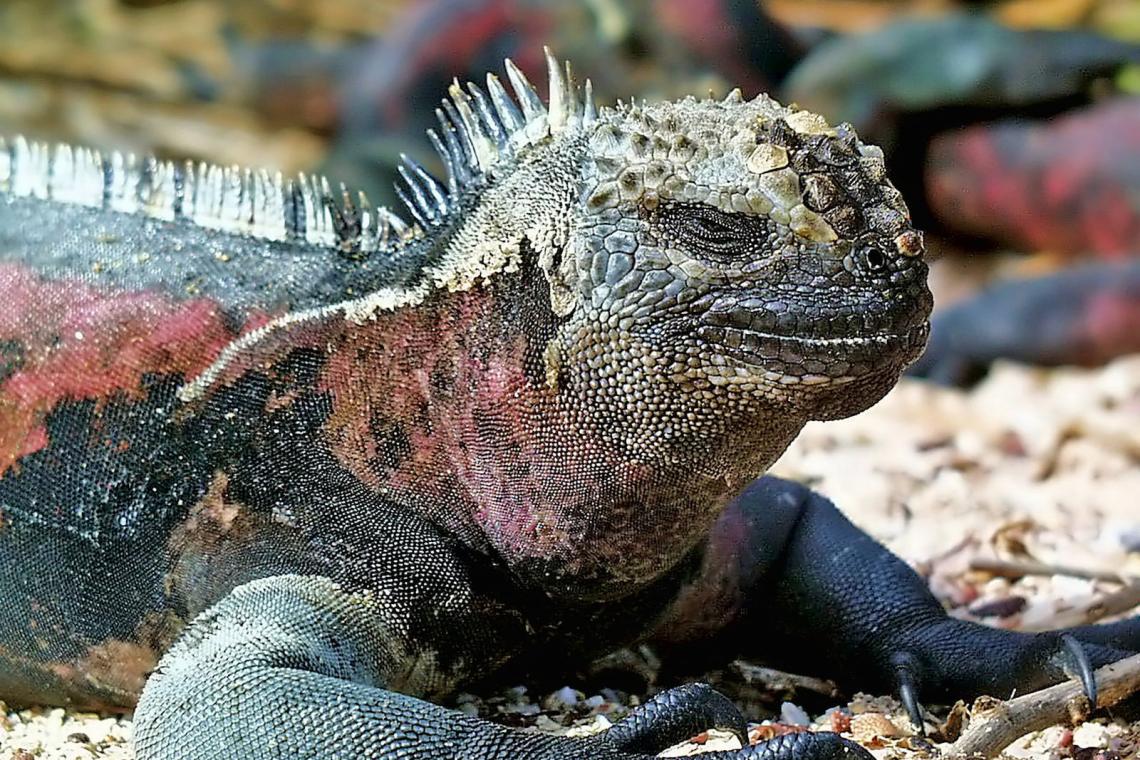Small developing nations and islands have had little to do with the macro atmospheric issues of amplified global climate change which is causing devastating impacts in some instances. Yet here is where we can sometimes find some committed and visionary and leaders determined to implement strategies that address both the associated atmospheric issues while also executing methodologies to meet the micro challenges of these complex changes. This type of local leadership is serving as a model for others around the world that, through careful planning, emissions can be reduced while also addressing the local challenges.
One example can be found on San Cristobal Island, Galápagos. San Cristobal is approximately 780 miles west of the mainland of Ecuador. International interest in the beautiful ecosystems of San Cristobal and other islands of the Galápagos - along with greater ease of travel - has led to an increase in travel to this natural wonderland. “The attendant spike in tourism-related anthropogenic impact coupled with deficient infrastructure development has put the archipelago’s natural capital and carrying capacity at risk” (Burke, A., 2021).
One operator has shown that you can combine modern world comfort with global leading sustainability practices. Luciana Bianchi and Pablo Majia have used their foundation, the Galapagos Foundation, and ecological boutique hotel, Golden Bay as the hub for meaningful reductions of environmental impacts and support for the host community of San Cristobal Island. Through a surgical examination of areas where their operations intersect with the environment and analysis of methodologies for reduction of the impacts, they have created a global model for small business to successfully meet the dual burden of reduction of atmospheric contributions of greenhouse gases while addressing the micro-manifestations associated with climate change. Their actions have reduced greenhouse gases associated with energy through the utilization of solar power, reduced methane through development of meaningful composting for fertilizer for an organic farm and rooftop garden that also serves to reduce energy from guest rooms, and, collected rainwater which reduces high demand on the island freshwater resources; and much more.

Dr. Thomas Mullikin with Luciana Bianchi at Golden Bay Galapagos
The Galapagos Archipelago is in a semi-arid zone where a lack of water resources is a constant challenge impacting the life of galapagueños as well as the tourists. “The increase of population and the development of economic activities related to the tourism industry put pressure over a scarce and fragile resource, such as freshwater. Therefore, it is necessary to find alternatives to enhance water supply in Galapagos” (Echeverría, P., et al., 2020).
Rainwater collection is invaluable to address the lack of clean water resources and can provide a reduction in costs to homes and businesses - particularly when powered off the grid from solar energy. Golden Bay has shown that rainwater can reduce damage on the local water system and reduce costs to the business. The rainwater collected is used for their crop and garden irrigation.

Solid waste planning is complex and critical area for small islands. Solid waste produces methane and without appropriate management can create negative epidemiological impacts for humans and marine resources. “Solid waste management in fragile environments is a serious problem especially on small, isolated islands that are tourist attractions. Waste generation in such places has rapidly increased and waste management options are limited.” Studies have shown that “increasing tourism, lack of treatment or disposal infrastructure, and difficulty of exporting waste to the continent worsen the situation. Galapagos Islands have a unique and fragile environment threatened by inefficient solid waste management” (Peñafiel, R., et al., 2018).
“Recyclable waste separation and biomass composting are considered to have important environmental advantages over landfilling. Methane emissions in landfills are of global concern due to their global warming potential (GWP). Landfills are import methane generators, representing approximately 19% of all anthropogenic emissions”. (Peñafiel, R., et al., 2018). Technology can assist with this gas and serve to offset other types of fossil fuels. “Landfill gas may be collected in pipes, and its energy may be recovered for local use; nevertheless, in conventional small-scale landfills (less than two million tons) methane recovery rate may be fairly small, around 5%” (Peñafiel, R., et al., 2018).

Luciana and Pablo utilized their compost in their rooftop garden which also serves to reduce necessary energy required to cool their guest rooms as well as for fertilization in their organic farm in the highlands. They have found that through a surgical examination of their impact on the environment they can increase profits while reducing their anthropogenic interference. Here they find a reduction of costs associated with water and energy used to cool their guest rooms.
Development of a more robust solar energy portfolio in San Cristobal could prove to reduce costs associated with transporting energy, reduce greenhouse gases related to those fossil fuels and reduce the potential for further environmental degradation. “In Ecuador, solar energy has represented only a small portion of its electric energy source despite abundant solar resources available. Previous studies assessing solar potential in the country have found that the Galápagos Islands are one of the most suitable areas for development because they receive one of highest solar radiation in the country” (Tian, A., et al., 2021).
Solar energy plus storage on site and “behind-the-meter” can help offset costs for local businesses and residents and address their anthropogenic interference. Transportation of diesel to the islands has proven to be fraught with challenges. “As diesel must be transported to the Galápagos by sea, fossil fuels have proven to be an unreliable energy source that compromise the ecological integrity and economic resiliency of the islands. For instance, in 2001, the Jessica oil tanker hit a reef and spilled three million liters of oil into the pristine marine reserve while delivering fuel from the mainland. The spill was considered one of the worst marine disasters the Galápagos history, triggering an international initiative to transition the Galápagos away from fossil fuels” (Tian, A., et al., 2021).
The Ecuadorian and Galápagos governments set out an ambitious “Zero Fossil Fuel Galápagos Initiative” aimed to “eradicate the use of petroleum-derived fuels. The original goals set out to produce 100% renewable energy by 2020 primarily with biofuels and wind energy. Since then, several renewable energy projects have been initiated with investment from the United Nations Development Programme, and the Ecuadorian, German, and South Korean governments. Despite these efforts, the archipelago still struggles to meet their energy goals as fossil fuels continue to generate 84% of the current electricity consumed” (Tian, A., et al., 2021). Solar energy through photovoltaic appears to be the most feasible renewable energy source.
Despite the larger challenges, local leaders like Luciana and Pablo have undertaken their own solar initiative. Their ongoing efforts first used solar energy to heat water for guest rooms. This project reduced costs and impacts the macro-atmospheric issue through reduction of use of the diesel.
The complex nature and challenges of food security on San Cristobal is “linked to the archipelago’s geographic isolation, its diminishing agricultural workforce, international tourists’ demand for recognizable food, and a lack of investment in sustainable and innovative agricultural futures. Food security is key to the long-term well-being of Galapagueños, who sustain Galápagos’ tourism industry.” (Burke, A., 2021). Luciana and Pablo have developed an organic farm that provides zero waste, MUYU, with direct farm to table organic foods. Their organic farm also provides healthy pizzeria and bakery where they apply natural fermentation methods, high fiber content products, cold press oils and reduced sugar at the same price as other similar - less healthy - alternatives.
Fortunately, the “unique geography of the islands, including the volcanic soil and diverse microclimates, allows for a variety of crops to be grown, such as coffee, bananas, citrus fruits, and vegetables. In addition to providing local food and economic benefits, sustainable agriculture practices also play a significant role in preserving the fragile ecosystem of the Galapagos” (Jaramillo Díaz, P., et al., 2023). Furthermore, studies have shown that “sustainable agriculture practices in the Galapagos, such as agroforestry and organic farming, can promote soil health, conserve biodiversity, and reduce the negative impact of agriculture on the environment. Agriculture in the Galapagos Islands is crucial for the local economy and the sustainability of the ecosystem. In addition, agriculture plays a key role in meeting the local population’s food needs and providing a source of income for residents.” (Jaramillo Díaz, P., et al., 2023).
Local leaders like Luciana and Pablo have accepted the challenge to contribute to food security while also addressing healthy menus and products. These sustainable agriculture practices “can promote soil health, conserve biodiversity, and reduce the negative impact of agriculture on the environment. In addition to providing local food and economic benefits, sustainable agriculture practices also play a significant role in preserving the fragile ecosystem of the Galapagos” (Jaramillo Díaz, P., et al., 2023).
Little more than a half a decade ago, I remember sitting with Luciana and Pablo while they discussed their ambitious plans. As a national park, leaning forward to make changes and even positive contributions is often difficult due to the expected governmental oversight of such a protected ecosystem. Despite any challenges, they have made a huge contribution to their island and their actions have contributed to the global conversation. From hearing their ideas to witnessing their execution, it is heartening to see how success is likely to appear. As the world continues to grapple with the complex and adverse consequences of global climate change and equally complex micro-manifestations of the climate change, local leaders who will step out will continue to light the path for addressing these issues. Their initial steps will demonstrate that environmental sustainability and economic sustainability are not mutually exclusive. “The journey of a thousand miles begins with a single step.” – Lao Tzu, Tao Te Ching (6th century BCE)


